He said, "Keeping this quiet is insane. People have evacuated whole planets for fewer microbes than there are in one atom-sized speck of the far side."
"Not always enthusiastically," Rasmah replied dryly.
For a moment, Tchicaya was certain that she knew what he’d done. Mariama had revealed their secret, whispered it in a few well-chosen ears, to punish him for his hypocrisy.
That was absurd, though. It was common knowledge that compliance with the ideal of protective isolation had often been begrudging, and everyone suspected that there’d been cases where the evidence had been ignored, or destroyed.
"This could win us the Wishful Xenophiles," he persisted. "One glimpse of this, and they’d desert en masse ." Not all Preservationists shared the view that cultural upheavel was the worst consequence of Mimosa; a sizable minority were more afraid that it might obliterate some undiscovered richness of near-side alien life. Four known planets dotted with microbes — whatever potential they offered for evolutionary wonders in a few hundred million years' time — might not be worth fighting for, and most people had abandoned hope that the galaxy contained other sentient beings, but unexplored regions could still be home to alien ecologies to rival Earth’s. Now, that uncertain possibility had to be weighed against life-forms by the quadrillion, right in front of their noses.
"These aren’t sophisticated creatures," Hayashi pointed out. "We can quibble about the definition of life in different substrates, but even if that’s conceded, these things really aren’t much more complex than the kind of RNA fragments you find in simulations of early terrestrial chemistry."
"That’s true," replied Suljan, "but who says we’ve seen all the life there is to see?" He turned to Umrao. "Do you think these could just be the bottom of the food chain?"
Umrao spread his hands helplessly. "This is very flattering, but I think some of you are beginning to ascribe oracular powers to me. I can recognize life when I see it. I can extrapolate a little, with simulations. But I have no way of knowing if we’re looking at the equivalent of Earth in the days of RNA, or if this is plankton on the verge of disappearing into a whale."
Yann said, "Now we’re talking xennobiology!" Tchicaya shot him a disgusted look, though on reflection the hideous pun seemed inescapable. A complex organism based on similar processes to the primitive ones they’d seen probably would be about a xennometer in size.
Suljan wasn’t satisfied with Umrao’s modest disclaimer. "You can still help us take an educated guess. Start at the bottom, with what we’ve seen. I don’t think we should try to imagine evolutionary processes; we don’t know that these things are primeval , we just know that they seem to be ubiquitous. So we should ask, what else can fit in the same picture? The vendeks don’t really prey on each other, do they?"
"No," Umrao agreed. "Where they coexist in a stable fashion, it’s more like exosymbiosis. In totality, they create an environment in the graph where they can all persist, taking up a fixed share of the nodes. A given vendek in a given place in the graph will either persist or not, depending on the surrounding environment. At least in the sample we’ve seen, most do better when surrounded by certain other species — they don’t flourish in a crowd of their own kind, but they can’t make do with just any sort of neighbor. In microbiology, you get similar effects when one species can use the waste of another as food, but there’s nothing like that going on here — there is no food, no waste, no energy."
"Mmm." Suljan pondered this. "No vacuum, no timetranslation symmetry, no concept of energy. So even if there’s another level of organisms, there’s no particular reason why they should eat the vendeks."
"They might have subsumed them, though," Hayashi suggested. "Imagine the equivalent of multicellularity. A larger organism might have different vendeks playing specialized roles. Different tissues of a xennobe might consist of — or be derived from — some of the species we’ve seen."
"I suppose so," Umrao said cautiously. "But remember, these things are much, much simpler than single-celled organisms. They don’t have anything remotely akin to genomes. In most multicellular creatures, all the cells in all the tissues share their full genome, with different parts of it switched on and off. It’s hard to see how vendeks could be regulated with the necessary precision."
Rasmah frowned. "Maybe multicellularity’s not the right analogy. What’s it actually like , on a larger length scale, to be immersed in these different vendek populations?"
Umrao shrugged. "For what to be immersed? I don’t know what kind of organized patterns of information can persist, apart from the vendeks themselves. If we’re going to model the behavior of some object, we need to know what it’s made from."
Tchicaya took a stab at this. "Different vendek populations, with stable layers between them? A kind of honeycomb of different heterogeneous communities?"
Suljan said, "Hey, maybe they’re the cells! Vendeks themselves are too small to play tissue types, but certain communities of them can be maintained within intact membranes, so maybe our xennobes could regulate the population mixtures as a surrogate for cell differentiation." He turned back to Umrao. "What do you think? Could you look for a form of motility in these walled communities?"
"Motility?" Umrao thought for a moment. "I think I could build something like that." He began tinkering with the simulation, and within minutes he’d produced an amoebalike blob moving through a sea of free vendeks. "There’s one population mix for the interior, and a layer around it that varies as you go from the leading surface to the trailing one. The leading surface acts like an invasion front, but it decays into the interior mix as it travels. The trailing surface does the reverse; it actually invades its own interior, but it lets the external population take over in its wake. Perpetual motion only, though: this cell could never stand still. And it’s a contrived setup. But I suppose there are all kinds of opportunities to modulate something like this."
Tchicaya looked away from the simulation to the mundane surroundings of the cafeteria. He was beginning to feel more optimistic than he had since he’d arrived, but this was all still speculation. To build a machine, a body, from anything like these "cells" was going to be a dauntingly complex endeavor.
He said, "We have to win time from the Preservationists. There has to be a truce, a moratorium, or this could all be wiped out before we learn anything."
Rasmah said, "You think they could make effective Planck worms, without knowing what they’re dealing with?"
"You’re the one who’s convinced that they have spies."
"If they have spies, why should telling them anything buy us more time?"
"When did spies ever share their intelligence with the masses?" Tchicaya countered. "Suppose Tarek was looking over our shoulder right now, but everyone else remained in the dark?" He turned to Umrao. "I don’t suppose you’ve investigated the possibility of Planck worms? A plague that kills the vendeks, and leaves a sterile vacuum in its wake?"
Umrao glanced around the table warily. "If any of what you just said was serious, I don’t think I should answer that question."
Suljan groaned. "Forget about politics. We need more data!" He slumped down across the table, drumming his fists on the surface. "I was playing around with something last night, before I stepped out for a snack and ended up mired in this discussion. I think I might have found a way to extend Yann and Branco’s technique, pushing the range about ten thousand times further." He looked up at Yann, smiling slyly. "The only way I could make any progress with your work, though, was to translate it all into my own formalism. Everything becomes clearer, once you express it in the proper language. It only took me a few hours to see how to scale it up, once I’d dealt with the mess you left us."
Читать дальше
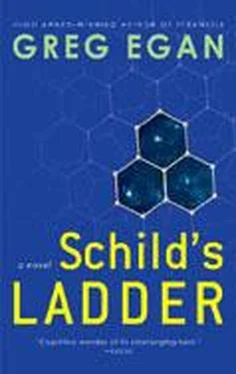
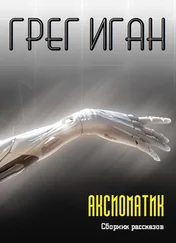
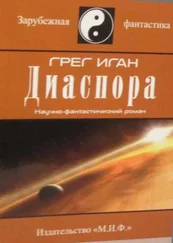
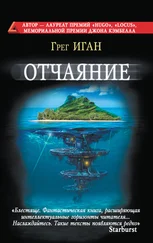
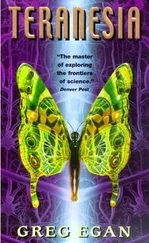
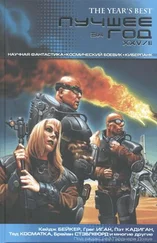
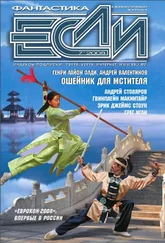

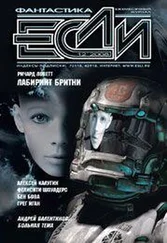
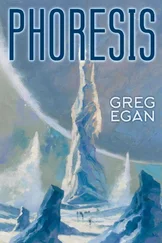
![Грег Иган - Рассказы [компиляция]](/books/419837/greg-igan-rasskazy-kompilyaciya-thumb.webp)
